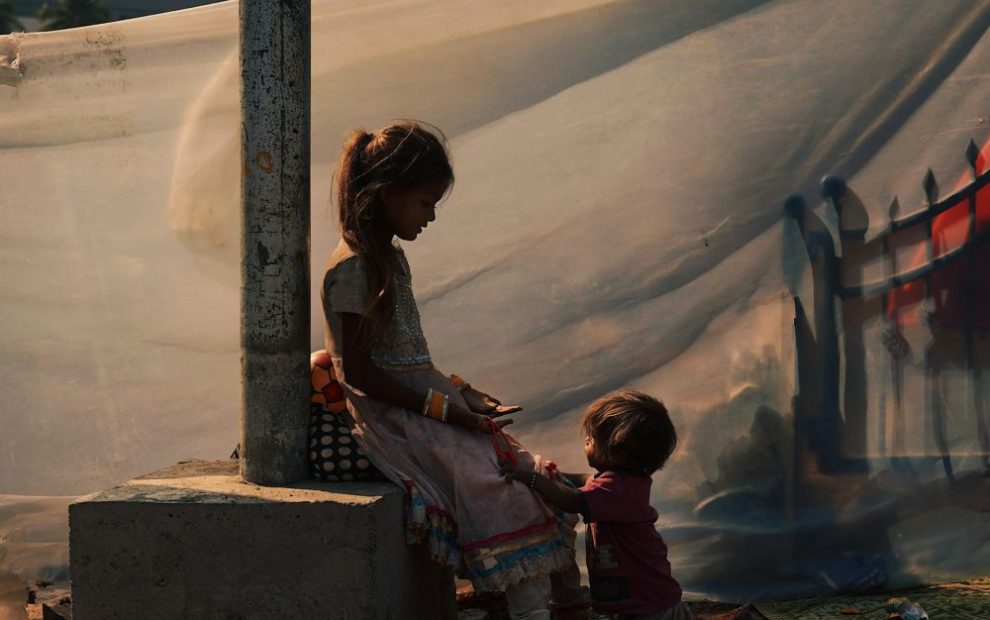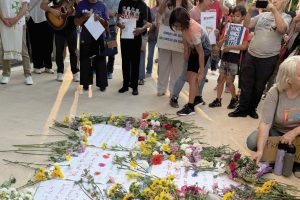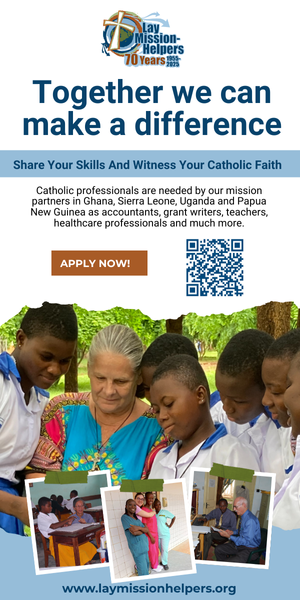As Pope Leo XIV begins his pontificate, many people expect him to continue Pope Francis’ focus on migrants’ rights, a cause he has already promoted in several public statements. In fact, even his choice of name—Leo—appears to signal a deeper commitment to this issue. His namesake, Pope Leo XIII, was the first pope to promote part of migrants’ rights that is often over-looked: the right not to migrate.
In the midst of massive deportations and growing attention to border crises in the United States, the church’s teaching not only affirms people’s right to migrate but also emphasizes the freedom people have to remain in their homeland. This “right to stay” refers to individual’s and families’ right to live securely and with dignity in their homelands, rather than being driven to leave by violence, poverty, or political instability. It places a moral obligation on the international community and local governments to address the root causes that force migration in the first place.
The migration crisis is not only a political or economic issue—it is a moral challenge that tests our commitment to human dignity and the common good. Catholic social teaching insists that true justice in migration policy must uphold both the right to migrate and the right to remain in one’s homeland. This means confronting the injustices—such as war, poverty, environmental degradation, and political oppression—that compel people to relocate in search for a better life.
A just response requires more than managing borders. It demands international solidarity, development policies that respect human dignity and foster the common good, and a renewed commitment to building conditions in which people are truly free to stay and flourish.
Pope Leo XIII and the right not to migrate
The idea of the “right to stay” first appeared in Pope Leo XIII’s 1888 encyclical Quam Aerumnosa (On Italian Immigrants), which addressed the challenges faced by Italian migrants to the United States. The pope expressed sorrow that many people had left Italy in search of a better life only to face poverty and harsh conditions in their new home. Worse still, many people lost access to the sacraments and the life of the church. In response, Leo sent missionary priests to minister to migrants in their own language—an early example of papal advocacy for migrants’ spiritual and material support.
Three years later, in Rerum Novarum (On Capital and Labor), Leo took this advocacy a step further, addressing the material struggle of migrants. He argued that governments and civil society should help workers build enough stability and property in their home countries to support their families. In other words, people should not have to migrate simply to survive—they should be able to flourish where they are.
These two insights form the core of what we now call the right not to migrate. First, people should not be compelled to leave their homelands due to unmet material needs or fear of violence and persecution. And second, societies should actively promote the conditions that allow people to remain—conditions like peace, security, and economic opportunity. In other words, migration should be a free choice, not a desperate necessity.
The right not to migrate throughout Catholic history
This idea has deep roots in the Catholic tradition. In 567, the Second Council of Tours called on local communities to care for the poor in the area so people would not be forced to travel to foreign cities in search of help. The council states:
Each and every city should provide its poor and needy inhabitants with sufficient nourishment in accordance with its own ability. Both priests and citizens should take care of feeding the poor in their own region. In this manner, the poor will not have to engage in tiresome traveling and dwell in foreign cities.
According to the Council, public officials and members of society ought to support the poor so that they are not constrained to move away to foreign lands.
A 16th-century Dominican theologian, Domingo de Soto, professor at the University of Salamanca and one of the main voices at the Council of Trent, mentions the right to stay when talking about foreign beggars in his book Deliberation on the Cause of the Poor. This book was written in response to laws in Europe that forbade public begging, especially of foreign beggars.
Soto defended people’s right to migrate to other countries based on natural law, hospitality, and the universal destination of goods. Some people objected to his argument, saying that the Second Council of Tours dismissed the right to migrate by promoting a right to stay. Soto, however, replied that the right to stay, as expressed in the Council, did not impede the right to migrate to other countries. Instead, people still have the right to migrate when they deem it necessary, and it is essential to support the poor so they are not compelled to leave their homeland if it can be avoided.
Popes Pius XII, John XXIII, and John Paul II on the right to stay
Modern popes have continued teaching the right to stay. In Exsul Familia (On the Spiritual Care of Immigrants), inspired by Leo XIII, Pius XII argues that the principle of the universal destination of goods ensures that people have a right for a living space, a place to develop themselves and their families, especially in their own homelands.
The universal destination of goods is an ancient Christian principle rooted in the theology of creation. God created the universe for the good of all people, and no one should be kept from the basic goods they need for their flourishing on account of nationality, wealth, race, or belief. While the church respects and defends private property and national sovereignty as pillars of society, these are not absolute principles and should not override people’s basic rights to survive and thrive.
After the horrors of World War II and the experiences of totalitarian regimes, John XXIII grounded the right to stay in the dignity of the human person in the encyclical Pacem in Terris (On Peace), affirming everyone’s right to live and move freely within their own country—and to return if they leave.
The dignity of the human person is a key principle of Catholic social teaching. Every individual is created in the image and likeness of God and redeemed by Christ, and therefore must be protected and cared for, regardless of nationality, religion, or ethnicity. St. Pope John Paul II continued to emphasized this right, referring to the “right not to migrate” in his 2004 message for the World Day of Migrants and Refugees. He talked about the dysfunctional migration of our times as the “migration of the desperate” and urged governments and society as a whole to take an active role in eliminating the root causes of forced migration.
Implications of the right not to migrate
Given the long history of Catholic teaching on the right to stay, Catholics should be aware that besides the right to migrate, the church teaches that people should have the freedom to choose to stay in their homeland. Forced migration is at the root of the modern migration crisis.
Catholic social teaching maintains that a local society and the international community should work to build the common good by promoting peace, rule of law, justice, and security while ensuring access to health care, education, housing, decent work, political stability, and human rights so people are not compelled to leave their homes.
In communities where the common good is in decline, people often feel compelled to leave their homeland and migrate abroad in pursuit of conditions more conducive to human flourishing. In a simple way, Catholics should work for justice and solidarity internationally, especially with those that live in vulnerable communities.
This right does not imply that migration should be obstructed. On the contrary, every pope since Pius XII has strongly affirmed the right to migrate while acknowledging the need for legitimate regulation of migration. However, the freedom to remain in one’s homeland calls for efforts to address the root causes of forced and dysfunctional migration, ensuring that people are free to stay where they are, even as migration remains a legitimate and protected option.
As Pope Francis reminded the church in one of his final messages for the World Day of Migrants, the right not to migrate safeguards the freedom to choose whether to stay or leave and calls for the responsibility of governments and civil societies. This is designed specially against forced and dysfunctional migration. While it does not cancel the right to migrate—long upheld by Catholic social teaching—it calls attention to a prior moral obligation: to create the conditions where migration is not a necessity born of hardship, but a free and dignified choice.















Add comment